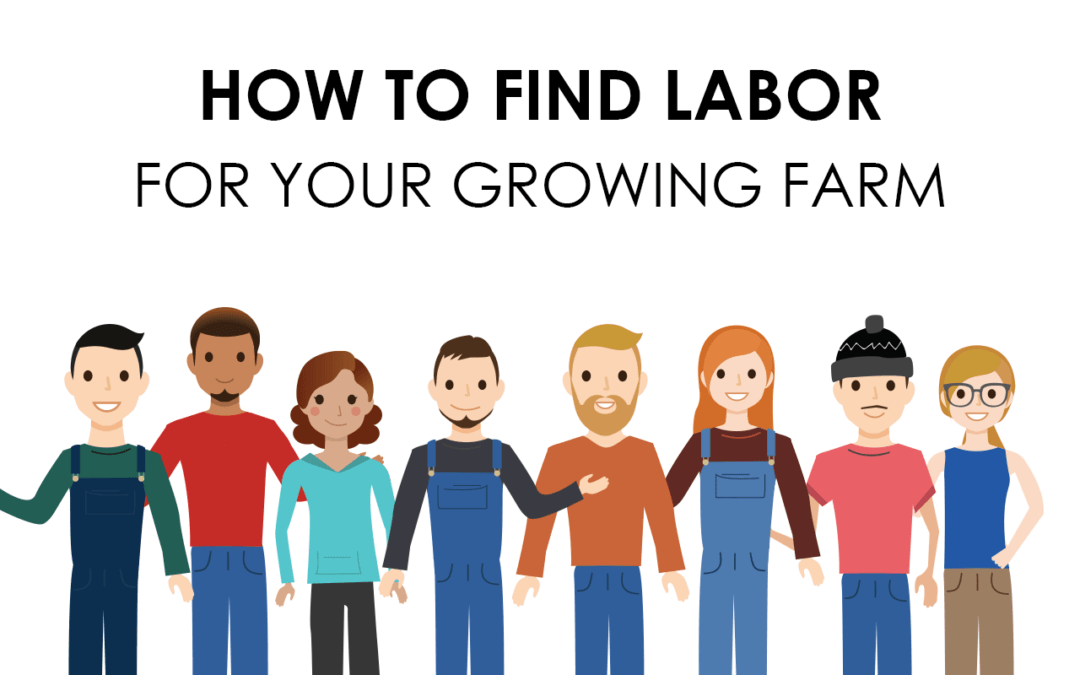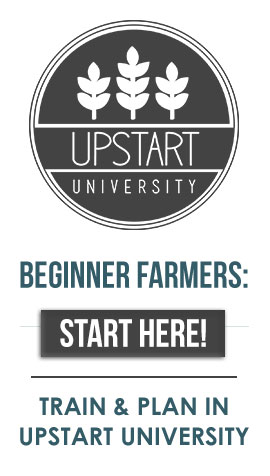Helping hands
Hiring new employees is a tricky endeavor for any company. For small farmers, the prospect of bringing in strangers to help run your dream job can be a frightening prospect. New faces, responsibility, and financial strains are a lot to swallow.
But we at Upstart University believe that any successful farm should be able to grow its talent just as well as any vegetable. We believe that with the right approach, a little research, and careful budgeting, any farm can get the extra hands it needs to succeed.
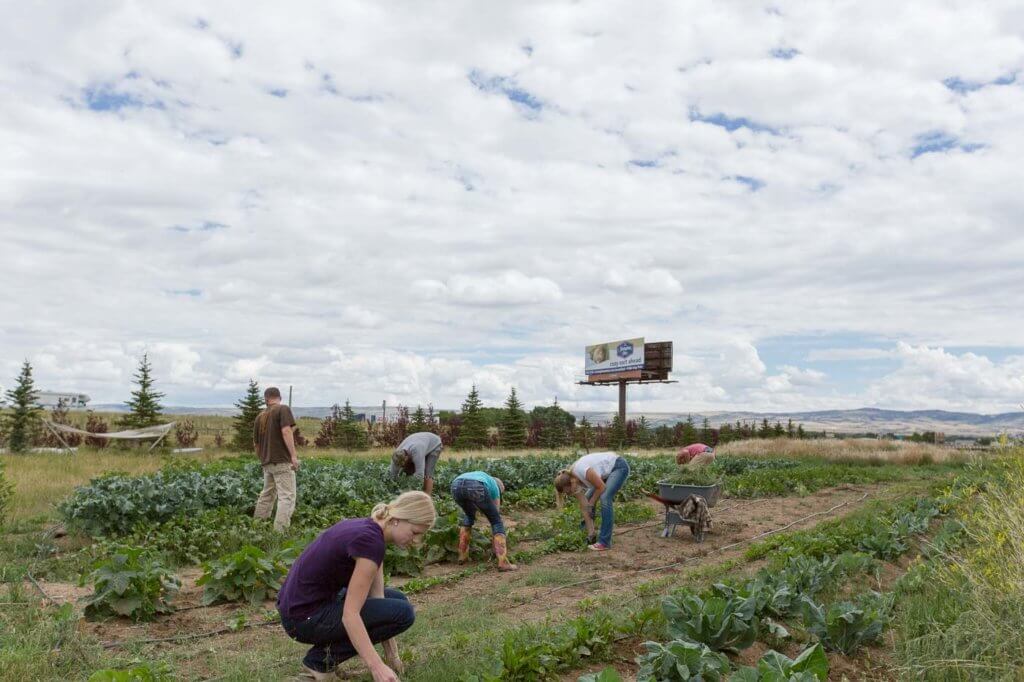
Hiring challenges
However, there a few challenges to hiring new personnel.
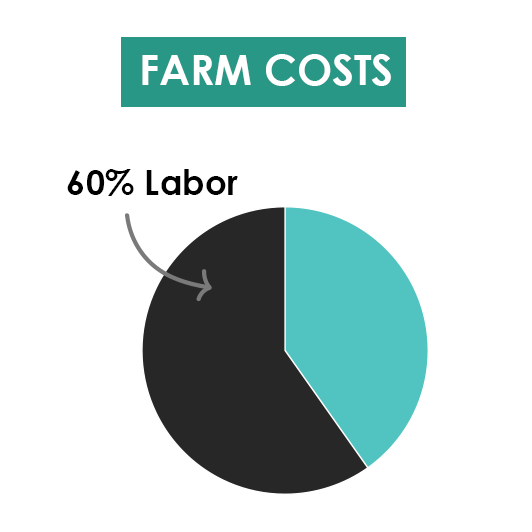 Lack of potential candidates: If you’re growing in a small town or community, it could be tough to find a lot of candidates. Don’t be shy about recruitment; cast a wide net over the surrounding region to collect candidates for the position. Check out the suggestions below on where to post job listings.
Lack of potential candidates: If you’re growing in a small town or community, it could be tough to find a lot of candidates. Don’t be shy about recruitment; cast a wide net over the surrounding region to collect candidates for the position. Check out the suggestions below on where to post job listings.
Labor costs: For most companies and businesses, employee salary and benefits represent a major part of any budget requirements (about 60% of farm costs are made up of labor). Consider carefully whether your farm and business can support such a large expenditure. The benefits of more labor must outweigh the cost.
Some critical questions to ask are, “How much more could I grow with another pair of hands?”, “How many more customers could I gain and serve with another person helping?”, “How much revenue would that bring in?”, and “What’s the difference between the cost of employment and the gains?”
Regulation and code: More employees means more regulation. This can mean more formal processes and higher regulation costs. You’ll probably have to have some training in place for employees that are involved in processes like spraying pesticides or packaging.
Make sure your farm is safe and up to code before hiring employees.
Hiring benefits
Despite the challenges, hiring employees is a positive step for your business. Some of the benefits include:
Increased production: The potential for increased yields or more streamlined production can spell success for many businesses. More hands working means more work gets done.
Reduced stress: Running a farm might be your dream job, but everybody has strengths and weaknesses. As a beginning farmer, you’re probably wearing lots of, if not all of the hats. Employees represent the potential for delegation, and the ability to focus on the tasks where you excel. Not only does this reduce stress, but it increases the efficiency of your farm processes!
Expanded opportunities: Helpful workers don’t just offer higher production. Having different skills and knowledge on your team can uncover new sales opportunities, ideas, and growth potential. Be sure to encourage your team to share ideas and take initiative so that you’re getting the most out of your employees.

Consider what sort of previous experience your perfect candidate would possess. Agriculture? Construction? Advertising?
How to find indoor farming labor
Many businesses are able to put a lot of time and money towards finding employees, you’ll probably be using small-scale tactics and tricks to find great employees.
While your farm might not be large enough to merit its own website, we encourage you to check out our job posting page as an example for how to write job descriptions. The basic idea is to identify your ideal candidate, then create a job description that will attract that type of person.
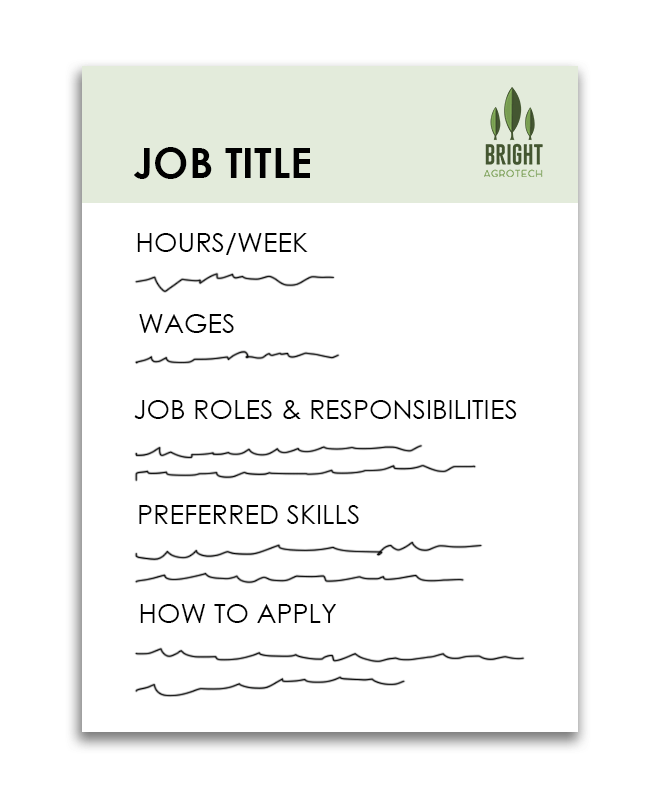
Don’t forget to include all of the necessary information:
- Major tasks & responsibilities
- Necessary skills
- Standard hours
- Pay rates
- How to apply
When you’ve got a strong job description ready to go, post your hiring ad in one of the following places.
Community: The biggest tool for hiring will be the community in which you’re firmly entrenched. Consider that your local produce has made friends and allies across the community. Through social media, paying visits to your buyers, and asking around, your growing community can be a great resource for finding potential workers. Consider also reaching out to nearby growers of similar scales and other successful agricultural operations with which you have a relationship. Leverage your existing connections.
Friends/Family: No one is going to stand behind your work like your friends and family. While there are many risks (favoritism, disciplinary complications, etc.) to employing family members, those close to you have the potential to be great employees.

Indoor Ag-friendly web: One of the great strengths of the indoor agriculture movement is its social reach. Make that reach work for you! While you may not have much luck recruiting on social media or other digital sources if your farm is located in a small town, those farms closer to urban centers have the potential to tap into a large base of informed workers. Folks who not only need a job, but want to contribute to their community, and learn a new way of growing.
The old school: Sometimes the oldest methods are the best. While social media and community relations might be the sexy new method of recruiting employees in the 21st century, don’t forget about tried and true approaches.
Putting out ads in newspapers, putting up signs or posters recruiting at local grocery stores, and attending job fairs or campus interviews will ensure your search for employees doesn’t neglect those outside the newer communities. Craigslist is not the hip social media that springs to mind when hiring, but can spread the word to a subset of candidates you might miss.
Others: Other places to post job listings will depend on your farm and community. Consider holding your own recruitment events like tours or presentations and inviting from labor pools in the surrounding area.
What to do when you find labor
Reviewing potential candidates is a challenge. Education, experience, technical skills, and even relationships should influence who you choose to hire. Picking the right qualities is the first step in picking the right candidates. Before reviewing your resumes, consider what your ideal candidate looks like. Make a profile of skills, experience, and personality that you would love to have working for you.

While no candidate will be a perfect match with your ideal candidate, knowing what you want will help you choose which candidates are definitely qualified for interviews. When you begin to contact potential candidates, you should ask some basic questions that will establish a baseline of compatibility with the position. Questions like, “Will you be available for the hours the job requires?” and “Are you qualified for this position?” can save you time in the long run.
The interview is a much discussed and practiced step. But much less has been said about interviews from the perspective of employers. While the perspective might change, the end result is the same: competent employees. There’s no need to over-complicate the interview step.
Conducting the interview
Interviews should be conducted with the aim of assessing all the potential requirements you put together for the application step. For example, if you’re hoping for candidates with experience working flexible hours in an agricultural situation, ask something along the lines of, “Describe your experience working in agriculture,” or “How do you feel about working irregular hours?”
Keep your questions straightforward and driving toward your hiring goals. More complex, personal questions like, “What are you most proud of that isn’t on your resume?” or “Tell me about what led you between your last few places of employment”, can reveal much about the way a candidate approaches work.
There are also a number of questions you shouldn’t ask. For example, “Have you ever been arrested?”, “How old are you?” and “What religion do you practice?” are illegal. Instead, ask examples that drive to the heart of your intent. In the previous examples, “Have you been convicted of a crime?”, “How long have you been in this career field?” and “Can you work on Sunday?” answer the topic at hand without crossing the line. (Check out the list here for more info.)
Using recommendations
Personal recommendations are a great way to help sort through your candidates. You should also consider seeking out personal recommendations for your candidates even if the candidates themselves don’t suggest any. Calling former employers, friends/family or co-workers of the employee will tell you what a resume cannot. Don’t feel guilty about having concerns about potential employees. Instead, seek out folks who can answer your lingering questions.

Don’t forget to research labor laws. Many of these are self-explanatory but plenty of rules are not! Start with your state’s Department of Labor website, and check out the Small Business Administration’s step by step guide to the paperwork involved. We’ve also included employment taxes on step nine of our Ultimate Guide to Starting a Farm.

